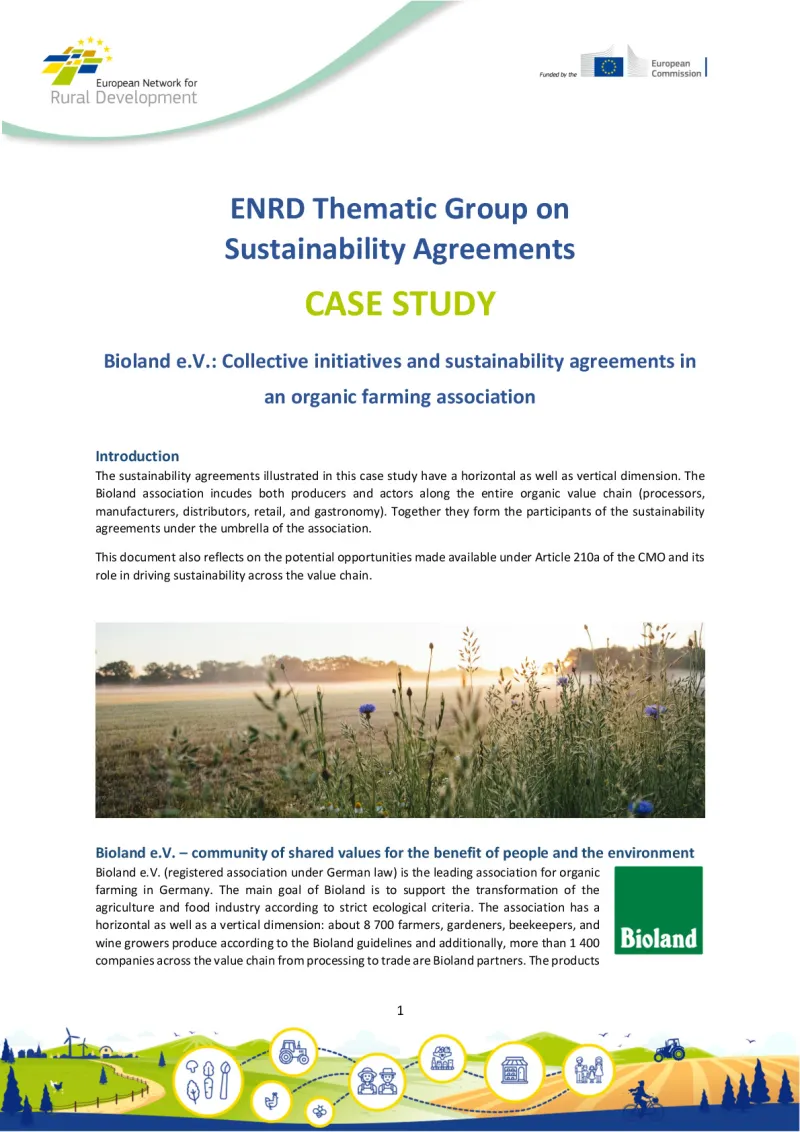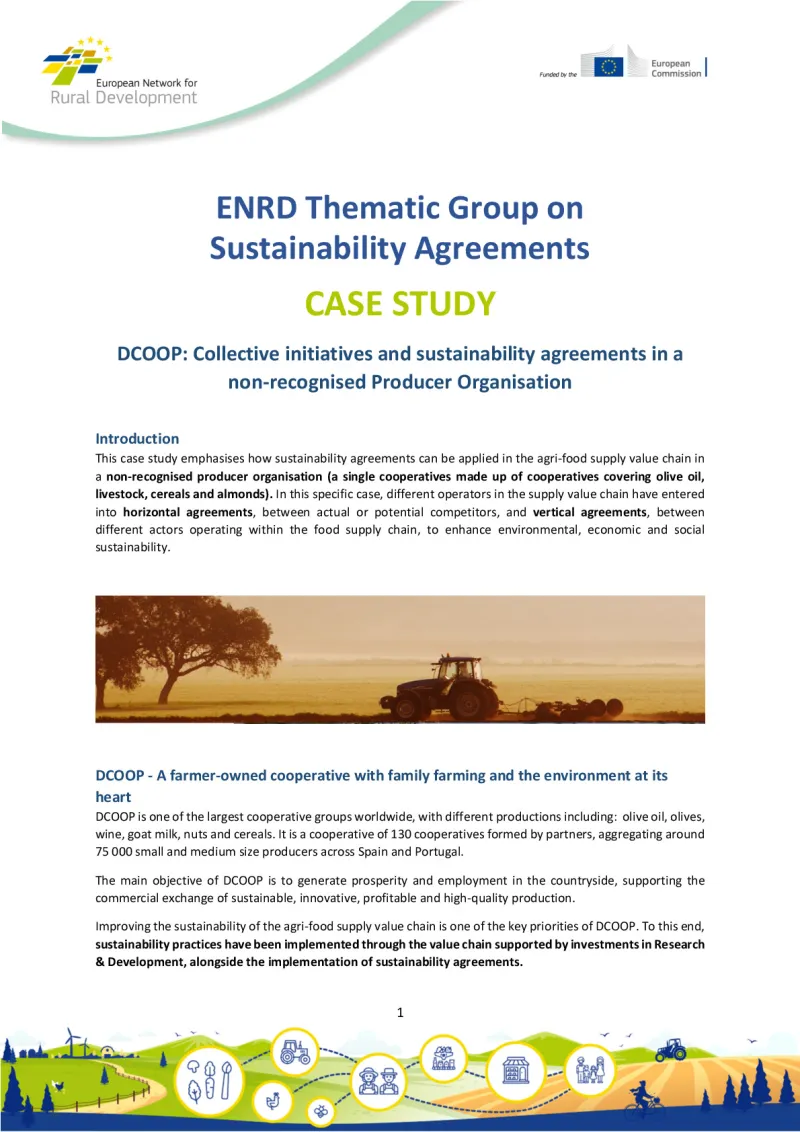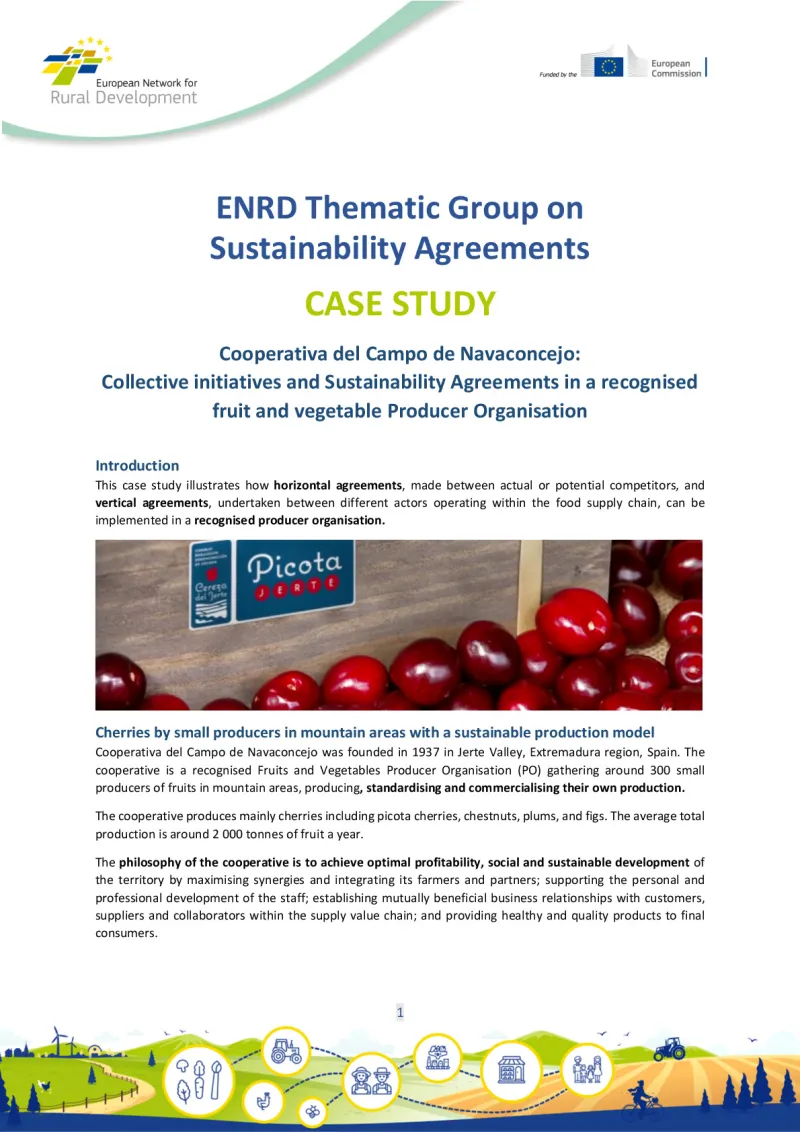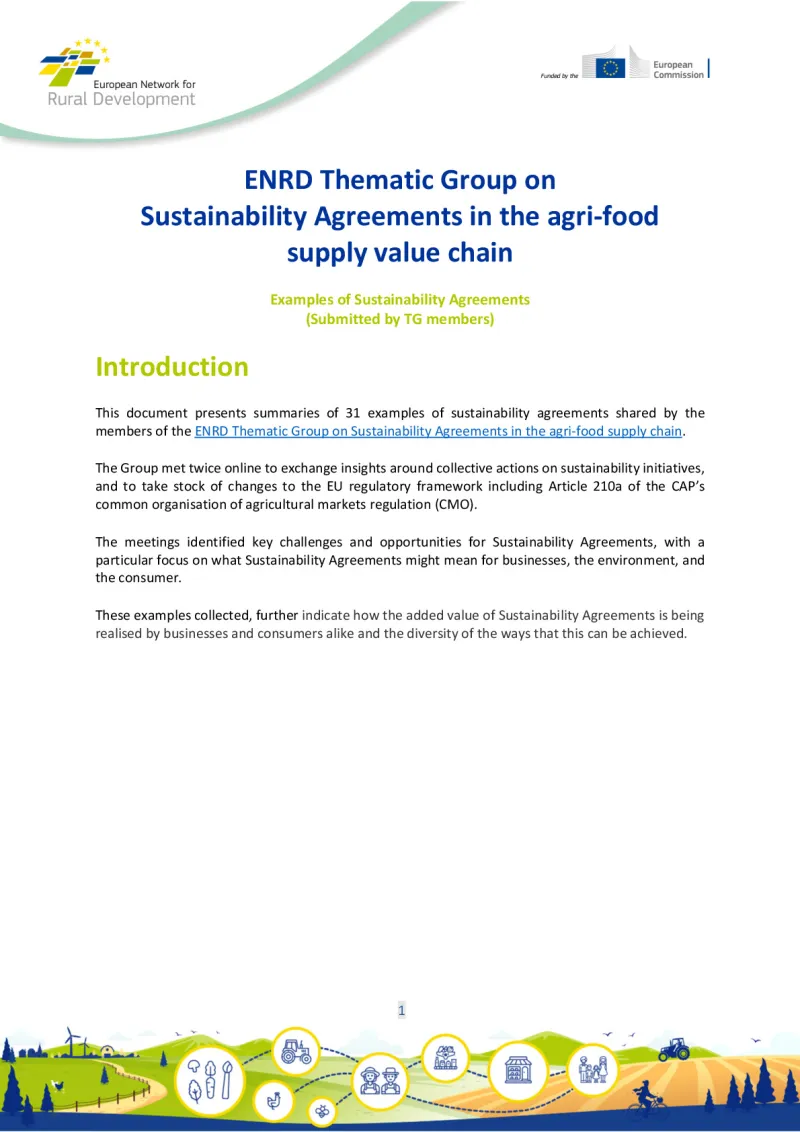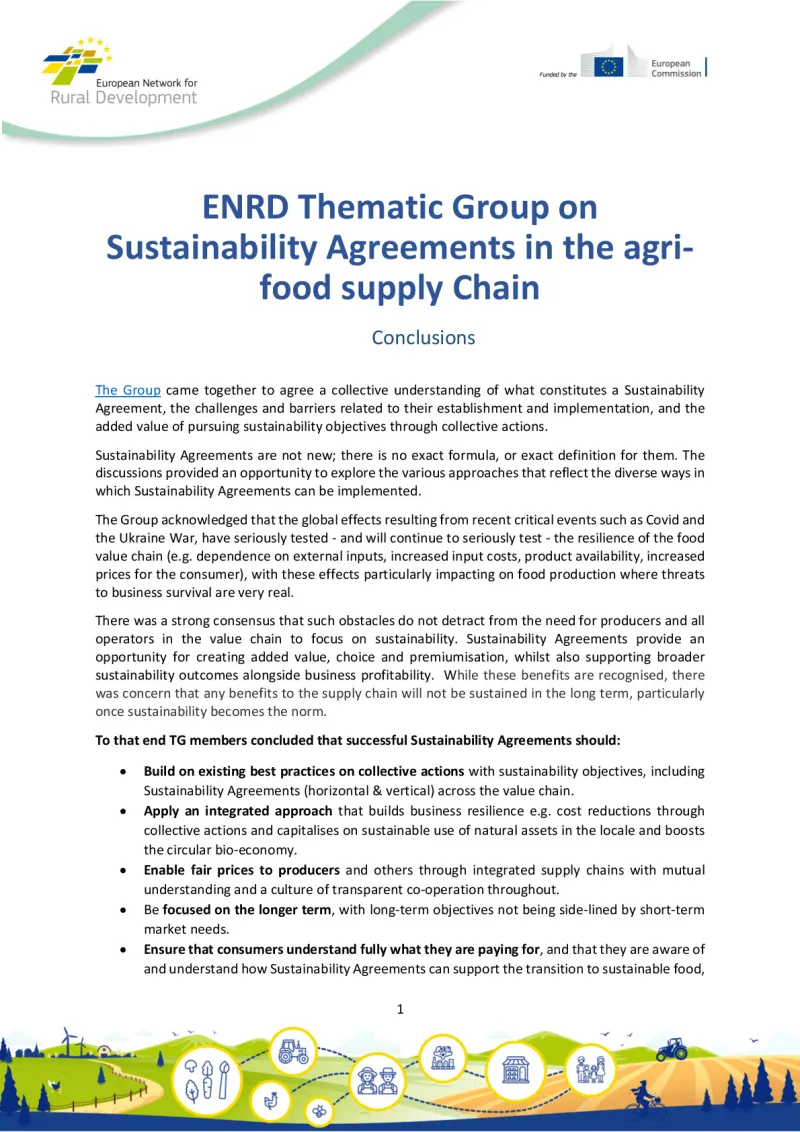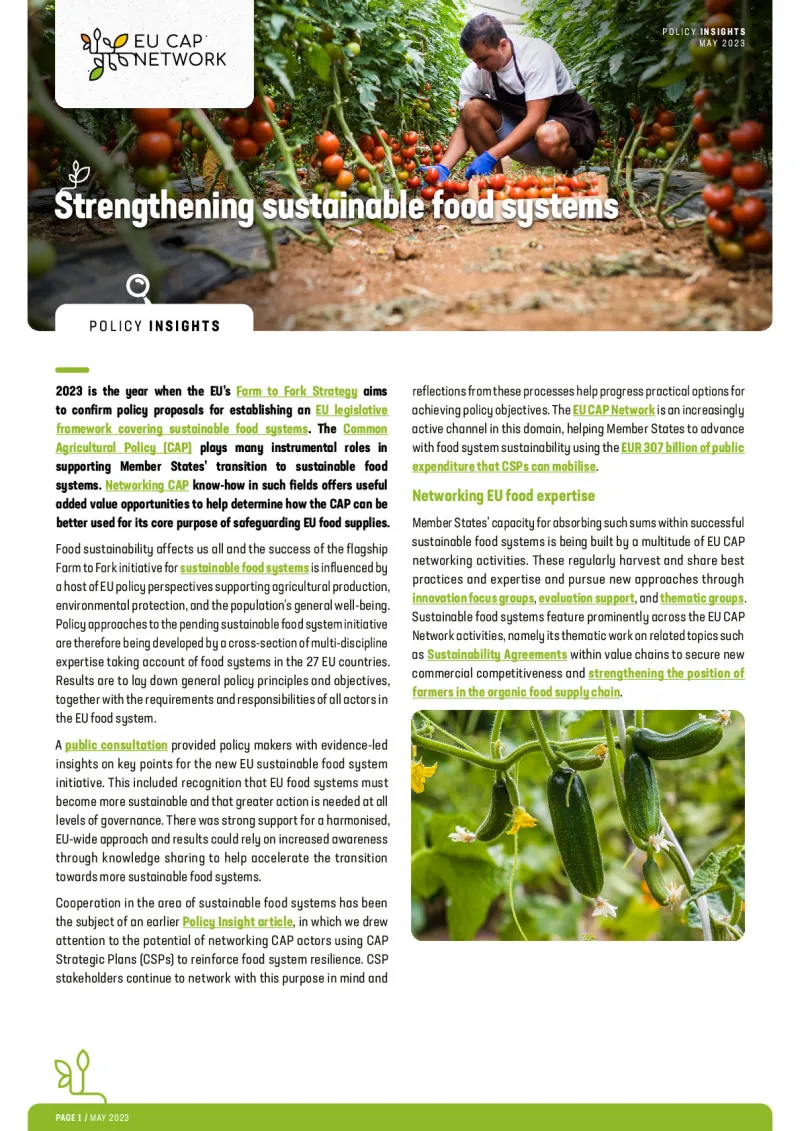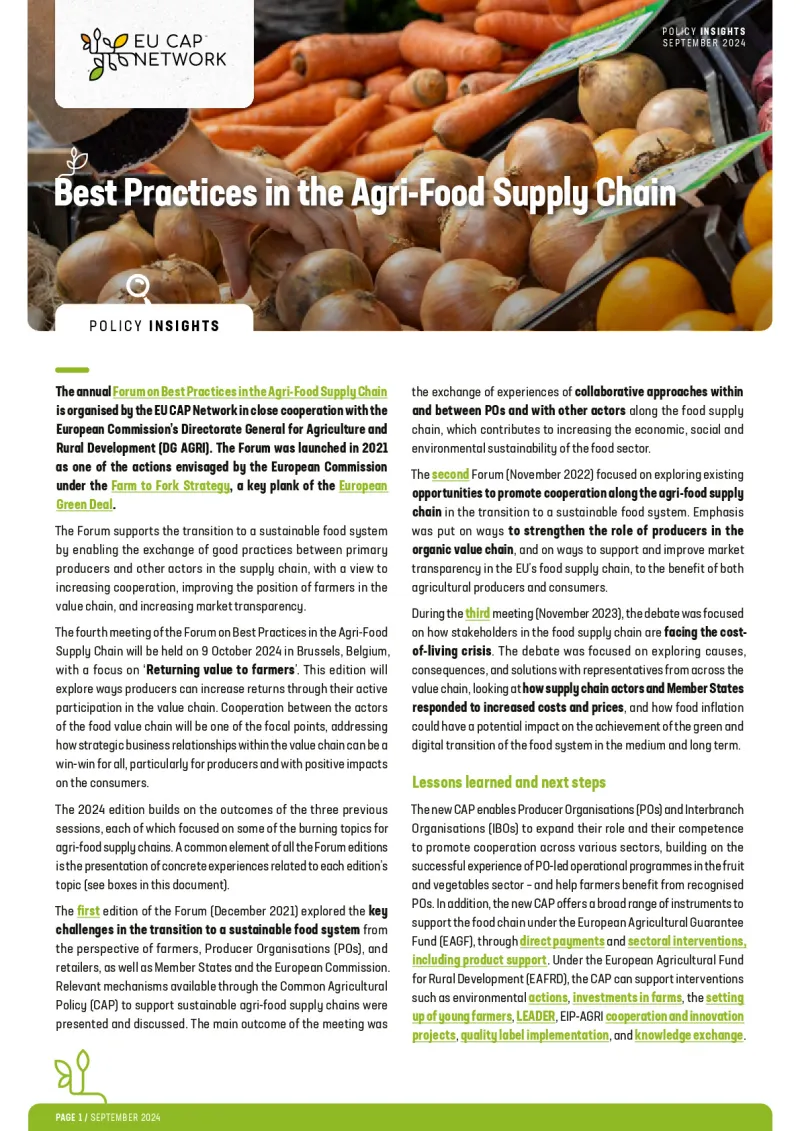Thematic Group on Sustainability Agreements in the Agri-Food Supply Chain

The new Common Agricultural Policy (CAP) for the period 2023-2027 supports efforts to increase sustainability in the production and supply of agricultural products through amended support mechanisms and market rules. Collective initiatives leading to agreements between actors in the agri-food supply chain have the potential to make a significant contribution to a sustainable food system, ensuring that actors in the food value chain (vertically or horizontally) collaborate effectively to deliver agreed outcomes and ultimately contribute to the achievement of the desired goals. For this reason, the new CAP contains an antitrust derogation to the prohibition of anti-competitive agreements.
In this context, the EU CAP Network established a Thematic Group (TG) on Sustainability Agreements which discussed how to:
- Understand how sustainability agreements are currently framed and pursued (horizontally and vertically) through the food value chain.
- Identify some of the challenges and barriers that collective actions around sustainability face, including in the light of regulatory changes.
- Identify the added value of pursuing sustainability objectives through collaboration.
If you have any questions, please contact us at implementation@eucapnetwork.eu
Objectives
The derogation allows, under certain conditions, sustainability agreements concluded between primary producers and other actors in the food value chain aimed at achieving higher sustainability standards than those required by law. These higher sustainability standards can pursue the following objectives:
- Environmental objectives, including climate change mitigation & adaptation, sustainable use and protection of landscapes, water and soil, the transition to a circular economy, including the reduction of food waste, pollution prevention and control, and the protection and restoration of biodiversity and ecosystems;
- The production of agricultural products in ways that reduce the use of pesticides and manage risks resulting from such use, or that reduce the danger of antimicrobial resistance in agricultural production; and
- Animal health and animal welfare.
Despite their objectives, collective sustainability initiatives raise a number of challenges in terms of governance, design of objectives and standards, possible public support, etc. The future development of such initiatives depends on the knowledge and ability of stakeholders to manage these challenges.
You can find useful resources about this theme further down in this page and in our Publications section.
